30. Hell Called Paradise
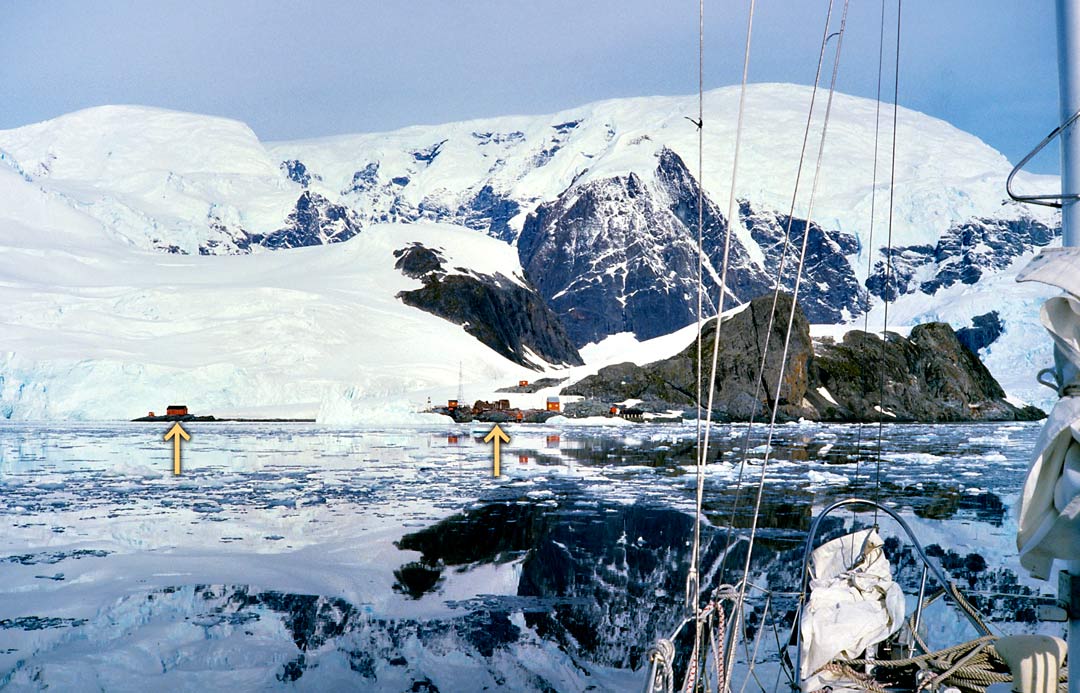
1. Alminante Brawn Station
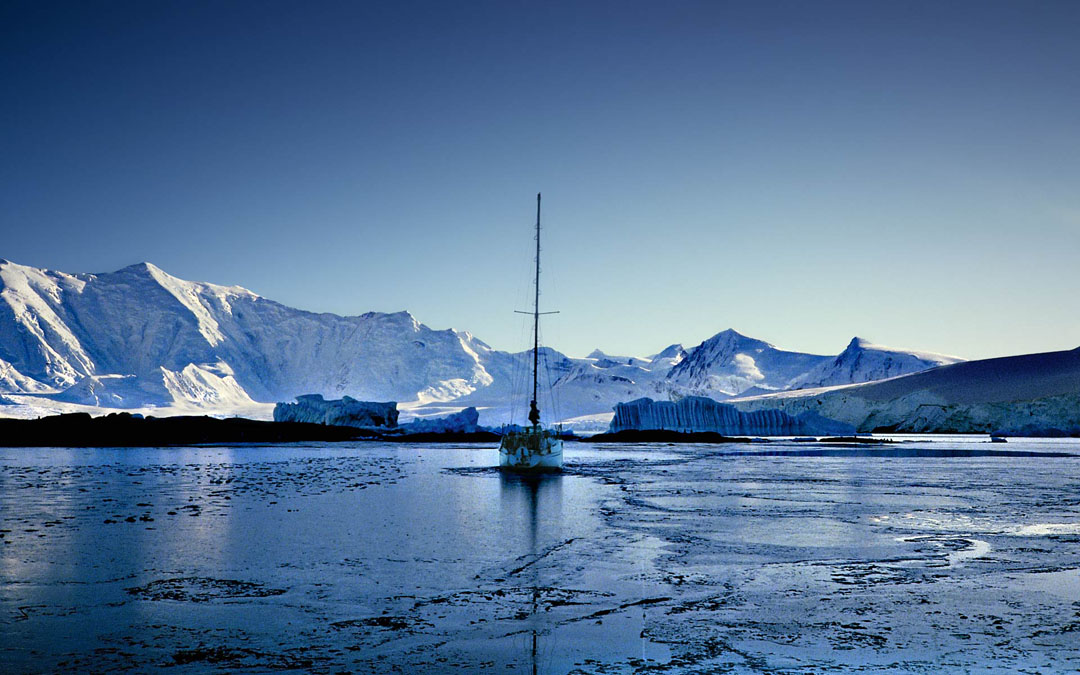 Sunrise at Dorian Bay
Sunrise at Dorian BayThe blue light before sunrise fills Dorian Bay at Wiencke Island, making it resemble the bottom of a crystal-clear lake. The sky, sea, and surrounding mountains look like a bright blue dream at dawn.
The water around Aomi appears like a hard, blue-stone floor. The entire bay is frozen solid, and I wonder if she will be able to move. I take an oar of the rubber dinghy from Aomi’s deck and lean out to poke at the sea.
The tip of the oar, driven with all my strength, breaks through the ice with a crunching sound. It’s barely 2 centimeters thick.
Thanks to her hull, reinforced with stainless steel plates and mesh, Aomi can easily break free from the frozen bay.
Soon after, as the morning sun rises into the clear sky, the 2,822‑meter ice-covered mountain before the bay begins to glow a stunning red.
The snowy wind that lasted for five days has now calmed, as though by magic. Not a single cloud is in sight. No matter how much I search above, all I see is the blue sky, so deep it feels as though it is pulling my heart into it.
The morning I have awaited for years has finally arrived. Since reaching a volcanic island in the Antarctic two weeks ago, I have been sailing south through ice-covered islands. Today, I will finally reach the Antarctic Peninsula, the southernmost land on Earth. I will set foot on the white continent I have longed for at last.
Breaking through a thin layer of ice with her stainless-steel-reinforced bow, Aomi leaves Dorian Bay and begins her passage through the Neumayer Channel. The steadily rising morning sun bathes the ice-covered islands in a dazzling silver glow.
Aomi moves forward in a zigzag pattern, weaving around chunks of bright white ice several meters long that float in the deep blue sea.
At times, Aomi collides with large blocks of ice, shaking her with a hard impact. Each collision makes both her hull and my heart feel as if they might stop.
Six hours after leaving, I arrive at a wide bay where the afternoon sun already glows near the ice ridges of the surrounding mountains. This bay, Paradise Harbor, is the landing site I have chosen on the Antarctic continent.
Inside the vast bay, which stretches over a dozen kilometers, the water is magically calm, without the slightest breeze or ripple. The silvery-white mountains encircling the bay block all wind from entering.
The calm is extraordinary. I have never experienced a sea so silent and flat. The bay’s surface is like a giant mirror, perfectly reflecting the light radiating from the silvery-white mountains that surround it. The gleaming, ice-covered slopes, the dazzling snowy landscape, are symmetrically mirrored both above and below.
On the vast, mercury-like surface of the water, countless white ice blocks drift, broken off from the surrounding mountains. The beauty is so overwhelming that it feels as if an invisible hand is squeezing my heart.
Ahead of Aomi, as she sails toward the far end of the bay, a black-and-white wall of ice and rock towers 1,700 meters above the sea, rising into the sky.
I gaze at this magnificent boundary between land and water. Then, I notice faint red buildings, no more than tiny dots in the distance. These are the buildings of Almirante Brown Base, an Argentine scientific research station.
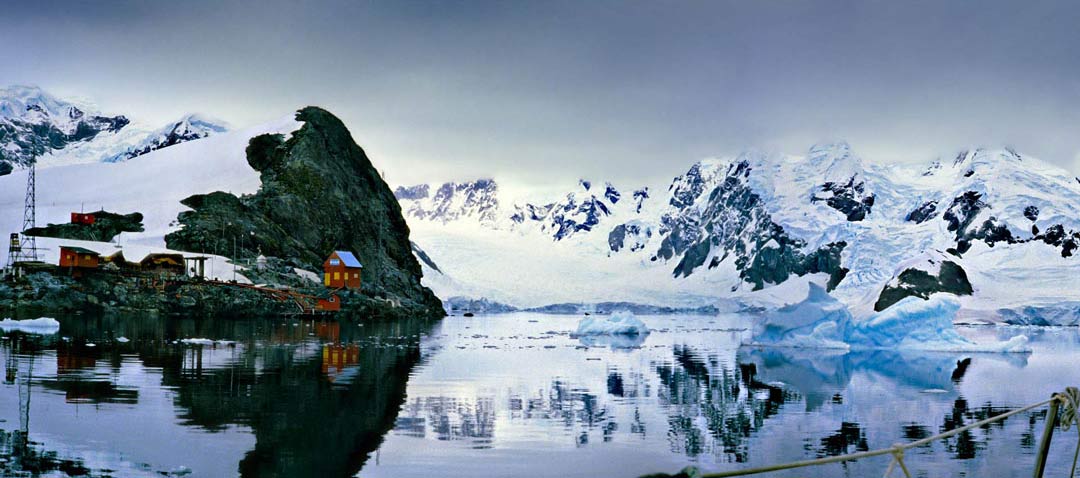
An hour and a half after entering the vast bay, I lower the dinghy into the water 50 meters from the base and paddle effortlessly, rippling the mountains reflected in the mirror-like water.
At last, I step with both feet onto the white southernmost land on Earth—the continent I have longed for!
My years-long dream has finally come true; I have reached the Antarctic continent. The countless modifications I made to Aomi in Argentina, the late nights spent earning money, the unforgettable capsizing accident, and the exhausting days spent crossing the Drake Passage in rough seas…
But there is no time to linger on emotions. All I care about is whether Aomi will remain safe tonight in the bay, where countless hard, jagged ice blocks of all sizes drift with the tide.
After rowing the dinghy to the shore, I step out and walk along the coast in my rubber boots. Before long, I come across burnt ruins resembling a junkyard, with steel frames and corrugated sheet metal mixed and piled together.
A few years ago, a doctor stationed at the base was required to remain in Antarctica for an extra year. Frustrated and desperate to return home, he reportedly short-circuited the X-ray machine in the medical room, sparking a fire that ultimately destroyed the base.
As I explore the remains of the main building, which was burned down, I notice that other structures, including a warehouse, a power generator, and a workshop, are entirely undamaged.
When I step inside one of them, I find machines and tools carefully maintained and neatly arranged, as if people had been here only yesterday.
A red-painted hut stands out vividly against a blue ice wall on the rocky shore, about 200 meters from the burned ruins. Feeling nervous, I turn the round brass knob and push the door open.
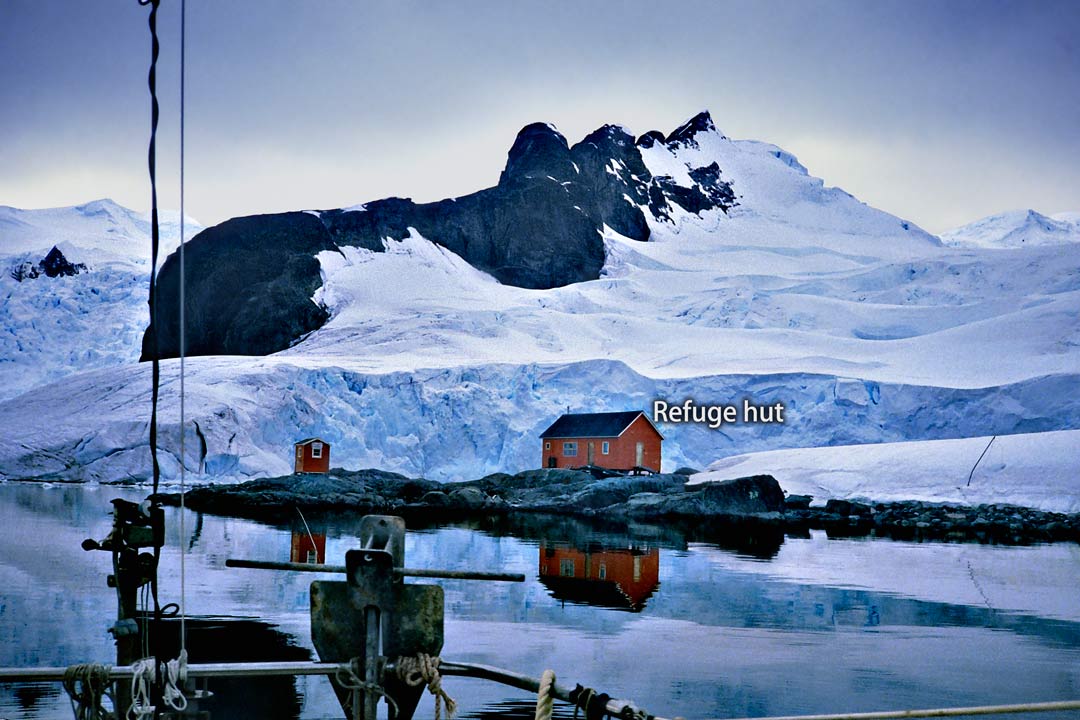
Inside, I find a small entryway with a few open shelves neatly stacked with large packages of spaghetti and macaroni. On the lower shelf, a bottle of Polish jam and a box of cookies rest beside a handwritten note.
The note explains that a Polish team visited this uninhabited base about two months ago, in the middle of summer, and left these items behind, likely for future visitors.
The next door leads into the main room, pleasantly bright with the evening sun streaming through the glass windows. In the center, a square table stands, likely used as a dining table.
The walls are lined with shelves stocked with Spanish-labeled chocolates, canned goods, and magazines, while a small kitchen and bunk beds sit at the back. They likely waited here for rescue ships after the main house burned down.
Suddenly, an idea strikes me, and I start examining the magazines and cans one by one. All of them are dated seven years ago. Nothing new is in sight.
It must have been about two years since the base burned down and was abandoned. Strange. Time in this bay flows… wrong, as if I have crossed into another world. Or perhaps my brain is no longer working properly.
Standing alone in the hut on the edge of the vast white continent, surrounded by deep silence without any sign of life, I feel dizzy, lost in a strange sensation.
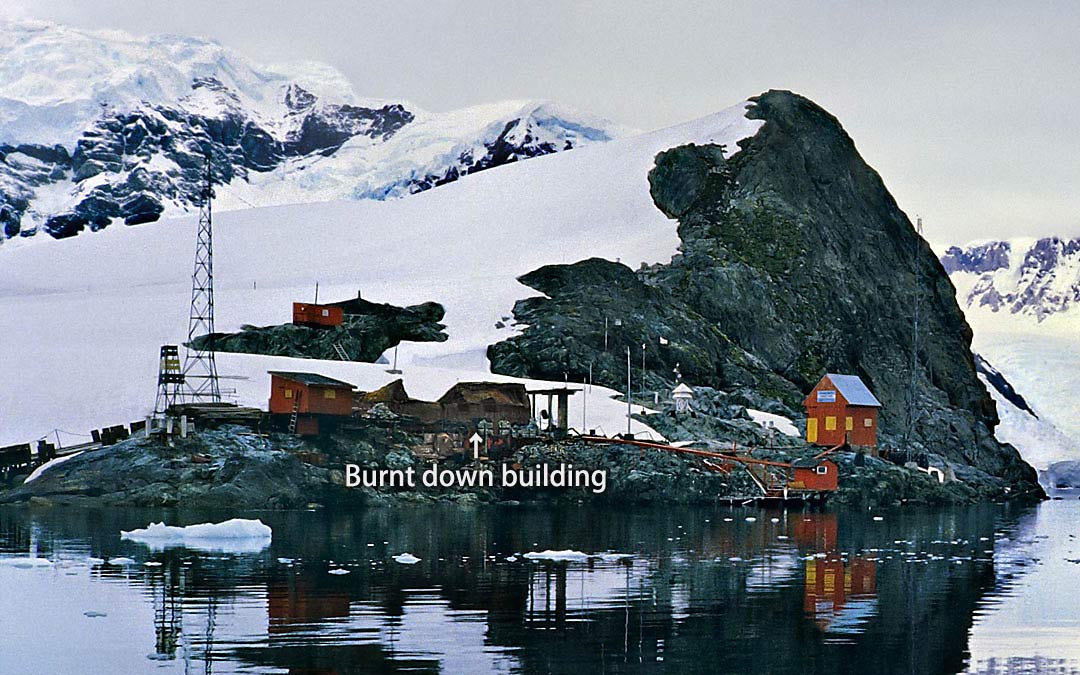
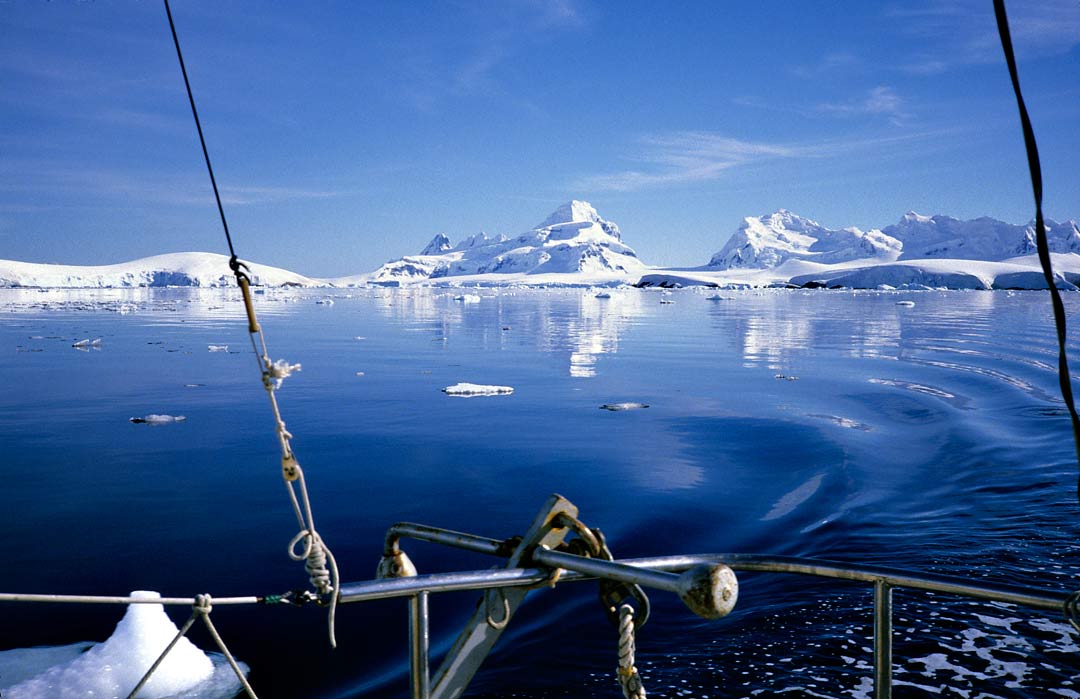
2. Paradise
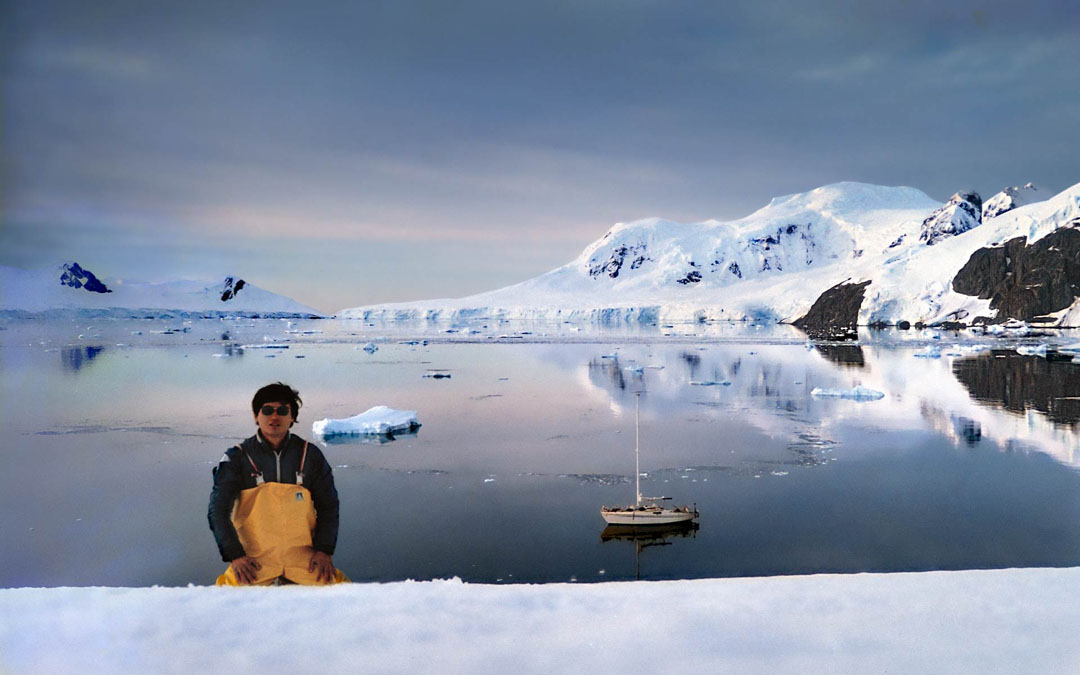
After about 20 minutes, I leave the hut and step onto the rocky beach, feeling its shape through the soles of my rubber boots.
The faint red-tinged light of dusk has already turned the Paradise Harbor into a dreamlike scene.
The view is truly heavenly. The sea shines like a vast, polished silver plate, scattered with countless blocks of ice in varying sizes. The ice-covered mountains surrounding the bay radiate a mysterious light all at once, as if in paradise. Their divine appearance is perfectly reflected on the sea, like a mirror.
Did the explorers of the 19th century gaze upon this same view and name it “Paradise Harbor”? It is hard to believe such a sight belongs to our world.
Still, when the wind blows from the mouth of the bay into this vast body of water, ice floes weighing hundreds of kilograms to several tons are driven deep into its interior, trapping Aomi tightly against her hull.
If the icebergs drifting with currents come into contact with Aomi, their sharp edges could tear into her hull.
Now that I know the terror of ice, the bay’s countless drifting floes and icebergs—ominous and as dangerous as moving rocks—have turned Paradise into hell. The view I had sought for years has become a hellscape.
Rowing the dinghy back to Aomi, I lie on my stomach on the deck, reach out with both hands, and lift a watermelon-sized piece of ice from the water.
Standing up, I swing the pickaxe down onto the deck and find the glacial ice is much harder than I imagine; it is like breaking a block of glass.
I put the broken ice in a pot, go down to the cabin, and place it on the kerosene burner to melt it into fresh water for my evening meal. As the small pieces of ice melt, they lose their balance and spin in curious patterns, showing why approaching an iceberg in a small boat is so dangerous.
Outside the cabin, I occasionally hear a sound like distant thunder as chunks of ice, ranging from small to huge, fall from the mountains into the sea. The tide within the bay carries these sharp ice blocks, striking Aomi’s hull with heart-stopping sounds that keep me tense. Popping sounds, louder than I imagine, echo through the hull as ancient air trapped in the ice escapes into the water. Little Aomi is enveloped by a chorus of sounds.
As the blue-black dusk falls over Paradise Harbor, a thin film of ice spreads across the water around Aomi.
Winter is arriving in the Antarctic. If I don’t leave immediately, Aomi will be trapped in the ice.
The next morning, I leave this beautiful yet terrifying bay behind, escaping back to Dorian Bay, Wiencke Island.
In the small, pond-like Dorian Bay, beneath a sky of deep intense blue, golden sunlight silently fills the windless air. Time seems frozen in a painting of a landscape framed by dazzling, ice-covered mountains.
Completely alone, I feel as if I am inside a vast dome painted with an azure sky, silvery-white mountains, and the sea. I doubt more than a handful of people on Earth have ever experienced such a view.
Breaking the perfect silence, I hear penguins. From Aomi, resting in the middle of the bay, I peer through binoculars at the shore and see countless white chests lined up on the rocks, basking in the sun.
Peering into the water nearby, I see the penguins swimming below the surface. Though they waddle slowly on land, they now spread their wings like airplanes and chase fish, flying at high speed through the water.
To collect fresh water for cooking, I paddle my dinghy to the bay’s shore. The water flowing down the eternal snow has already frozen solid. I find a spot where the ice is thin, make a hole, and scoop water repeatedly with a cup, straining it through gauze before pouring it into a polyethylene container.
The stream was not frozen when I walked this white slope just a few days ago.
I must leave the Antarctic quickly.
Otherwise, the sea will freeze, and escape will become impossible.
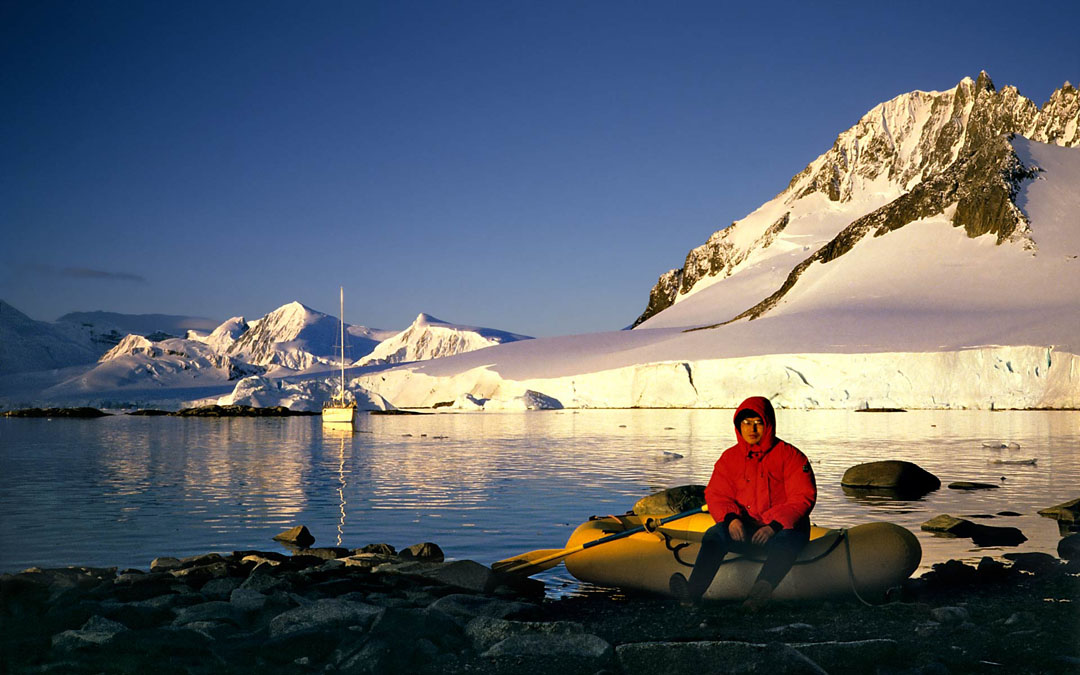 Back in Dorian Bay
Back in Dorian Bay
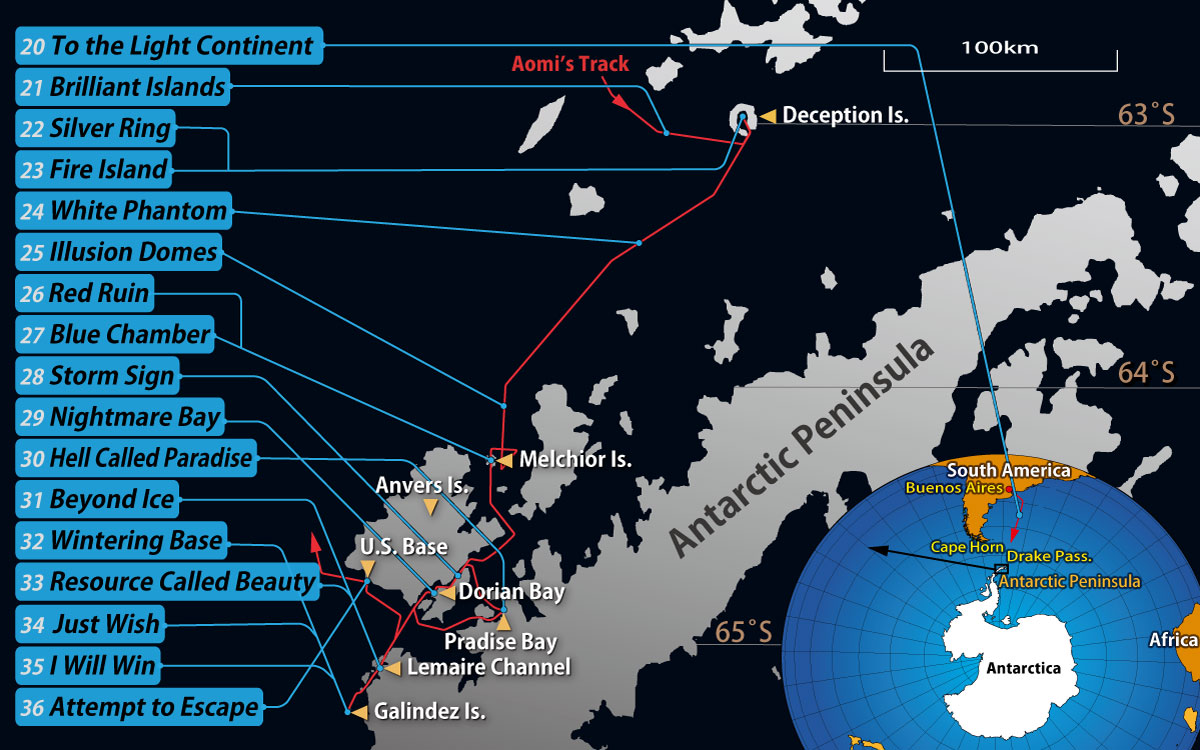
Hi! Any questions or suggestions about the content are greatly appreciated.
I’d also love writing tips from native English speakers. Since English isn’t my first language, if you notice any awkward phrases or anything that seems off, please let me know.
Thank you!
E-mail